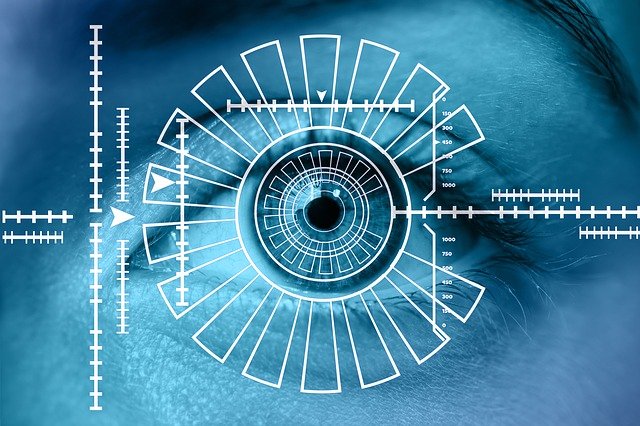Chinese Social Credit System - Authoritarianism by Algorithm
Netflix' Black Mirror production relishes in telling stories about characters experiencing the consequences of living in a near-future dystopian world where today's technology has evolved for far reaching, but often believable, negative consequences.

Souce: IMDB
One of the most beloved episode of the series is entitled Nosedive and tells the story of Lacie, a woman living in a near-futuristic world where every individual carries a public rating affecting how he or she is perceived by others, but also impacting directly on day to day matters of life.
The episode depicts how people with high ratings enjoy better quality of life by benefiting from advantages not available to others down the scale.
In this world, living with a high rating allows you to skip queues, fly first class at a discount, hire premium cars, living in upper class neighborhoods and so on.
Living with low ratings can push you at the fringe of society and deny you many services available to others.
Lacie, though quite a high scorer herself, craves to increase her rating to the very top but a series of seemingly inconsequential incidents stack up to push her down irreversibly to the bottom of the scoring ladder.
In the world of Nosedive the mechanism affecting one's rating is quite simple and depends on others up voting or down voting you. As a result most people live in the eyes of others and try to generate as much "like" as possible by being artificially pleasant with others and making sure their public image shines above everybody else.
This should sound very familiar to all of us as this is merely an extension of how most social networks (including Steemit) operate to the non-digital world.
Lacie's misfortune happens as a result of the rules of digital social networks extending to our every action in life.
This sounds scary indeed and one would be forgiven to think that this is just material for a good but sensational fiction. After all, many think that while 1984 by George Orwell is an excellent novel and deserves discussion in schools, surely our modern world could never evolve to such level of people control.
Enters China and the digital age.
The communist country is now in a trial phase of their new Social Credit System which aims at developing a national reputation scheme that the government intends on imposing on every Chinese individual and enterprise by the year 2020.
In this system every individual will be given a rating which will be affected by a series of software algorithms taking input from many sources such as digital payments, law infringements, social activism, credit history or simply connections to high or low rated citizens.
A high rating will give the Chinese citizen access to commercial promotions on certain goods, license to travel first class and access to credit.
A low rating will deny some citizens from all of the above as already happened in 2017 when the Supreme People's Court revealed that over 6 million Chinese had been banned from flying as a result of social misdeeds.
The social credit system took life in the Rongcheng region in the Eastern Chinese province of Shandong where a trial has been taking place for a few years. According to a founding document released in 2014 by the State Council, the system should "allow the trustworthy to roam everywhere under heaven while making it hard for the discredited to take a single step".
The 740,000 people of Rongcheng were given an initial score of 1,000 points. This rating would then go up or down based on some arbitrary rules such as getting a traffic ticket, helping the elderly, committing an act of bravery, jay walking, etc.
Nowadays the pictures of top ranked citizens can be seen on billboards in public places and a common subject of conversation between citizens is to discuss the amazing story of a neighbor making it to the highest stratum of the ranking ladder.
Insidiously the scheme appears to have brought some positive changes in the community, such as drivers yielding to pedestrians and people helping the elderly. But these benefits come with tremendous consequences and failing to fit in within the system has the result of marginalizing many by sending them to the bottom of the ranking system. Score low and your rights to travel will be affected or your access to top schools and universities will be impeded.
The Chinese government is now supporting a massive effort to bring the Rongcheng experience to the whole country by setting up a national credit system.
To achieve this, the state can now make use of the fact that a huge portion of Chinese people use their smartphone for micro payments in shops or computer for online orders.
In 2015 Ant Financial, an Alibaba Group affiliate, was one of eight tech companies awarded a license by the People's Bank of China to develop their own credit scoring platform. Soon after the Zhima Credit (Sesame Credit) scoring system was born and was integrated with the Alipay online payment system claiming 520 million users.
What makes Zhima Credit unusual is that it doesn't calculate the score solely on past saving habits and loan repayment history but also the items purchased, the education level of the account holder and even the score of his/her personal friends.
Access to the Sesame Credit is voluntary and so far 200 million Alipay users have opted in.
Why so many?
The answer seems to lie with the convenience aspect of using one's mobile to quickly pay for goods and services.
Scoring high on the Zhima Credit ladder opens up financial advantages with hundreds of companies and financial institutions which have formed various kinds of partnership with Ant Financial, for example the ability to rent a car without deposit or get preferential loans and apartment rental.
Ant Financial offers very limited details about the algorithm affecting a Zhima Credit score but alarmingly the firm has revealed some unconventional criteria such as the score of contacts in the account holder's Alipay social network, the type of car owned and where he/she was educated, the place of work and so on.
This kind of far reaching monitoring supervised by state controlled organizations feeds in within the medium term policy of the communist party which aims to bring existing mechanism aimed at steering population behavior into the digital age.
By 2020, the Chinese government intends to have a "social credit" rating assigned to all citizens of mainland China which will be based on their economic and social status.
This will provide a strong platform for the state to control its population and industry's behaviors in the future.
At the heart of this remarkable development lies the uncomfortable truth that the population itself is unknowingly submitting to such control by adopting the convenience offered by modern technology and those few giant players, such as Alibaba, that control it.
Are other developed countries immune from such dangerous developments?
Would their population steer away from tech giants trying to gather valuable personal data which could be used for citizen control in the future?
Could the convenience of digital micro payments be rejected by consumers for fear of insidious state control?
If only...



